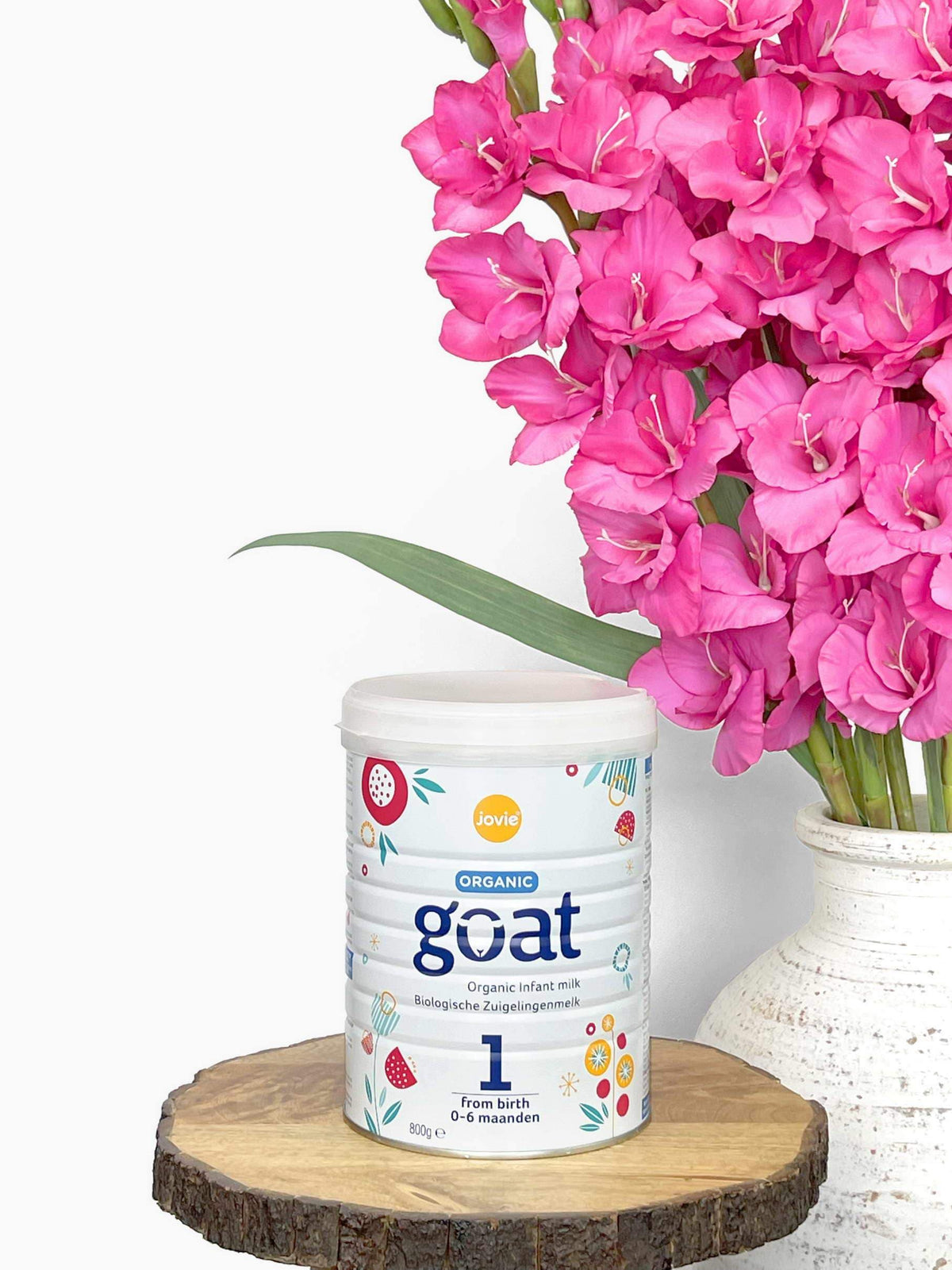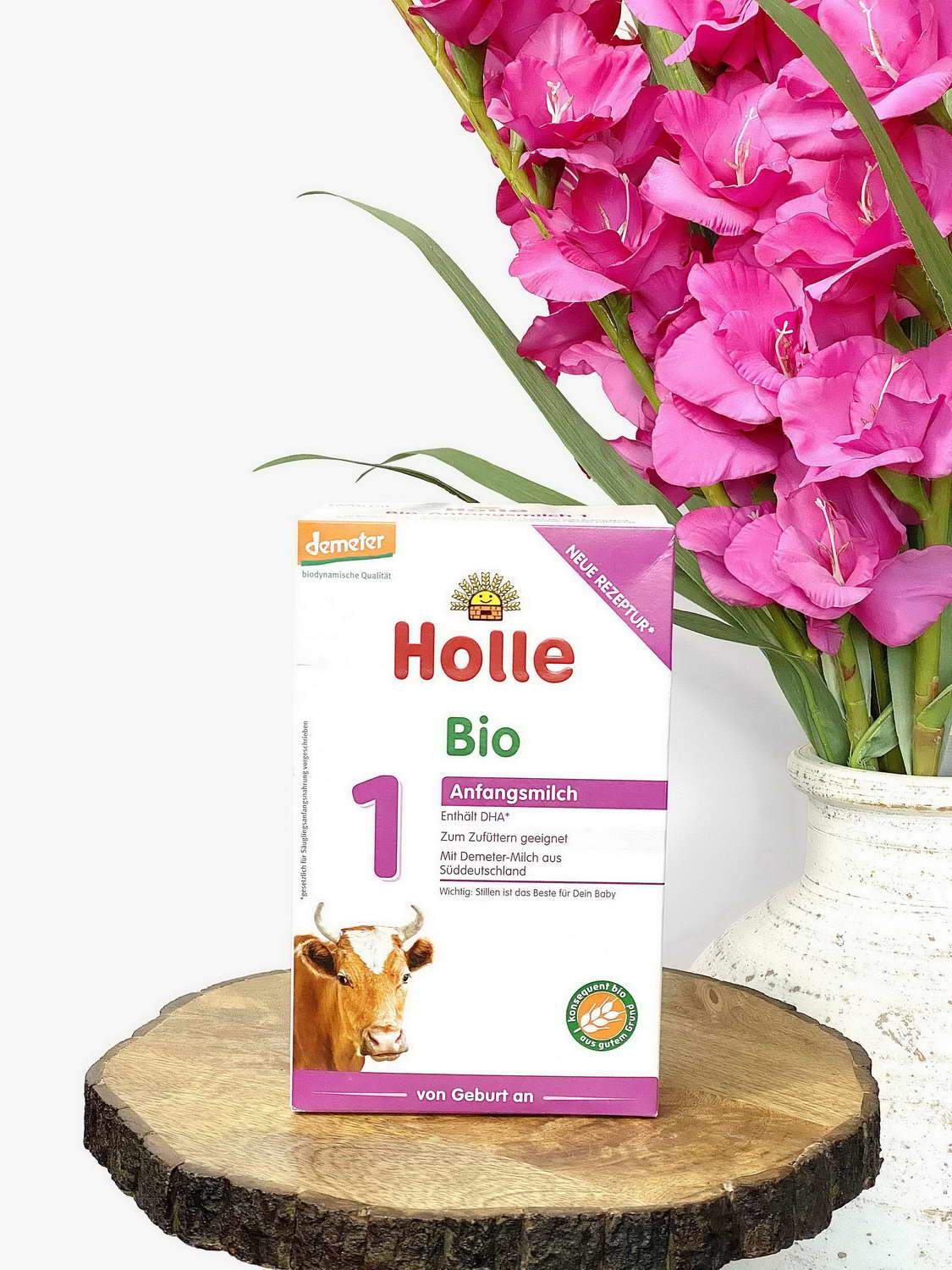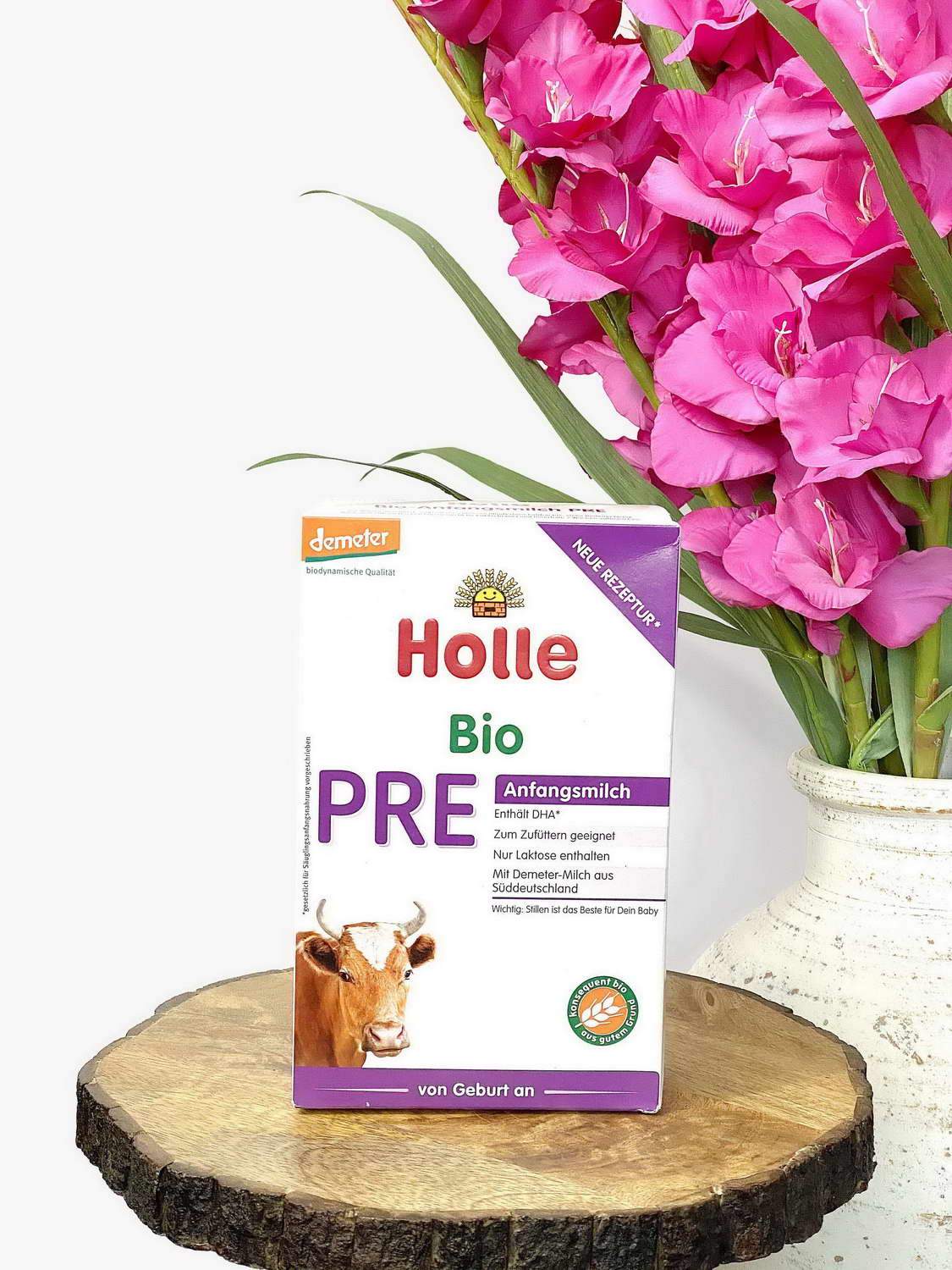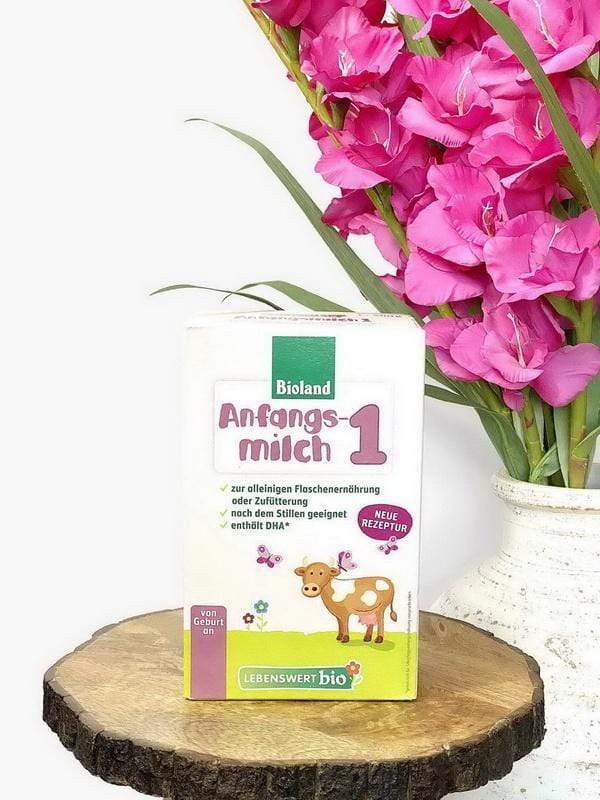Your cart is empty
Shop formulasYou have not added any favorites yet.
Shop formulasRecommended products
Baby Probiotics: Everything You Need to Know
Written by Renee Published on 03/01/24 Read Time 9 min

As you spend time researching the best nutrition for your baby, you will find that a hot topic has been the addition of probiotics to baby formula.
Widely known as being good for a baby’s gut and boosting immunity, probiotics are beneficial bacteria that balance out the potentially harmful microbes in infants’ digestive tracts.
The best baby probiotics are said to help with common conditions such as colic, eczema, and antibiotic-associated diarrhea.
What are Probiotics
The human body, from infants to adults, is full of bacteria and microorganisms, both good and bad.
Probiotics are often called "good" or "helpful" bacteria because they promote general health, improve digestion, and boost the immune system.
Natural Good Bacteria
An infant’s microbiome is populated naturally during the first days of life and can be maintained in various ways.
During Delivery
When babies are born vaginally, they are exposed to an immense quantity of beneficial bacteria in the mother’s vaginal canal. This natural bacterium helps your baby to establish colonies of gut bacteria.
Skin-to-Skin Contact
This bonding time is extremely important for all newborn babies' health and well-being in immeasurable ways, but one of which is a particularly vital role for babies born via cesarean delivery.
For little ones not exposed to their mother's good bacteria during delivery, skin-to-skin offers an opportunity for this transfer.
Breast Milk
Human breast milk is rich in probiotics, particularly Lactobacillus and Bifidobacterium Infantis. These readily available healthy bacteria are transferred from mother to baby through mother's milk.
European Baby Formula
European baby formulas are designed to meet every need, nutritional and digestive. This careful thought includes the addition of probiotics in many European baby formulas.
Benefits of Probiotics
An infant's delicate system can easily experience upsets that can disturb the healthy bacteria in an infant’s gut. The use of antibiotics, food allergies, and childhood illnesses are just a few ways that may lead to unhealthy gut bacteria propagation.
An imbalance of good and bad bacteria can cause a number of distressing symptoms in your baby, such as:
🥺 Diarrhea
🥺 Colic
🥺 Eczema
Added probiotics can assist your baby’s body in remedying and/or preventing these symptoms by balancing and activating the immune system.
There are three top probiotic strains for babies. Each has properties that soothe digestive worries and help calm and reduce pain in your little one.
😊 Bifidobacterium bifidum, which aids digestion and nutrient absorption, in turn, can be helpful with constipation, diarrhea, and infant skin conditions such as eczema and yeast infections.
😊 Bifidobacterium Infantis is a strain most prevalent in infants. Supports overall health and digestion. This form of probiotics reduces inflammation and supports immune function.
😊 Lactobacillus Rheuteri has been found to help children ages 6-36 months to have nearly 1/3 fewer cases of diarrhea and 1/2 as many respiratory infections.

Are Infant Probiotics Safe
In a high-quality human study, newborn babies were given either baby formula that had been supplemented with a probiotic in the form of bifidobacterium, standard baby formula, or breastfed. The results were encouraging and have set the standard for further studies and have now proven to be a safe and effective way to balance and maintain a healthy gut in infants.
Here are some of the more interesting facts:
At One Month of Age
Babies who were given the probiotic baby formula had a similar amount of bifidobacteria in their gut as that of breastfed babies, which was a significantly higher amount than in the babies receiving the standard formula.
In the Follow-Up 28-day Study
Babies who cried excessively and fussed were given infant probiotics and had a significantly lower incidence of crying and fussing than the babies who were given a placebo treatment.
Although few studies mentioned are not specifically focused on the safety of probiotics, they have an extensive history of safe consumption by both infants in a clinical study without any harmful side effects.
Probiotics for Infants
Starting at the first day of life, there are a variety of reasons to add probiotics to your infant's daily routine. Some of these reasons include but are not limited to; when a baby is born by cesarean, being exposed to antibiotics (during birth or after birth), and when your little one’s nutrition is not balanced.
These factors, among others, can disrupt the gut microbe in little ones and lead to tummy troubles that are hard on the whole family.
It is incredibly important in the first year to allow baby access to probiotics that can help bring stability and healthy natural growth of beneficial bacteria within your baby's digestive system.
Offer Probiotic-Rich Foods (6 Months+)
Safe options include pasteurized yogurt, kefir, and any probiotic-rich solid food your doctor has agreed is safe.
Get Outside and Play
Dirt is one of the best sources of healthy gut bacteria. Allowing your little one to play in the dirt is a wonderful way to increase exposure.
Believe it or not, soils contain probiotics known as Bacillus, which are not easily obtained from food sources.
Infant Probiotic Supplement
Many probiotic supplements on the market are tasteless and blend easily into the formula or pumped breast milk.
Remember to add the probiotic supplement after preparing the formula since the heat will likely kill off the beneficial bacteria if added prior to warming.
If probiotic supplementation is the direction you want to go, we recommend checking with your pediatrician for the right one.
Best Baby Probiotics
Your little one’s nutrition plays a vital role in helping your infant to obtain beneficial gut bacteria and protecting the healthy gut microbiome as it is developed.
If formula-feeding, using a probiotic-enriched formula with organic natural ingredients can set the foundation for happiness and health today and a solid foundation for future well-being.
European baby formulas are designed to meet every need, nutritional and digestive. This careful thought includes the addition of probiotics in many European baby formulas.
HiPP Baby Formula
HiPP Organic Baby Formula Company understands how essential it is to provide babies with safe, wholesome nutrition for all families. With their high-quality standards and wide selection of formulas, HiPP makes a fantastic addition to any baby’s diet.
HiPP European baby formulas contain the natural probiotic L. fermentum hereditum® that was originally isolated from human milk.
HiPP Comfort Baby Formula
Designed for infants who experience flatulence, colic, constipation, and may be allergy-prone, HiPP Comfort has probiotics to complement the 86-87% hydrolyzed protein.
HiPP German Organic Combiotic
HiPP German Combiotic is the only baby formula producer that can draw on more than 20 years of experience producing organic infant milk.
HiPP organic quality is subject to considerably stricter criteria than those stipulated by law. HiPP German has natural prebiotics and probiotics for added digestive protection.
HiPP Dutch Organic Combiotic
Supporting the development of a healthy intestinal microbiota with its synbiotic composition that includes probiotics naturally sourced, HiPP Dutch Organic Combiotic helps to break down any allergy-causing bacteria.
HiPP Kindermilch
As your older infant adds solid nutrition to their diet, probiotics are more crucial than ever.
HiPP Kindermilch is intended to be used as your little one transitions to a cup. This high-calorie formula has the optimal balance of nutrients to support eye, bone, cognitive health, and gut health, all while keeping up with the high energy needs of these busy years.
Goat Milk Baby Formula
The most sensitive babies need the best ingredients formulated to meet the digestive and nutritional needs of babies with the most delicate systems.
European Goat formulas contain less lactose than cow's milk by approximately half a percent and are easier to digest than fatty acids.
When you add probiotics to the natural benefits of goat milk baby formula, your baby will have relief from gas, bloating, and other digestive issues.
Jovie Goat Milk Formula
Jovie goat milk is specially designed for little ones with sensitive tummies. Providing critical nutrients similar to breast milk, goat’s milk formula is a great alternative to cow's milk formula.
For the first time in European goat milk formulas, we see galactooligosaccharides (GOS) added directly to the formula, a dietary fiber promoting beneficial bacteria growth.
GOS helps with constipation in immature digestive systems and positively influences the development of your baby’s immune system.
Probiotics For Kids
The presence of beneficial bacteria in your baby’s immature digestive system profoundly impacts health, immunity, and long-term well-being.
My Organic Company proudly carries European baby formulas that support a healthy gut microbiome from birth through toddler years.
To discuss the latest in baby probiotics, breastfeeding alternatives, or formula combination feeding, please join us in the HiPP Holle Kendamil & European Baby Formula Parent Community. This is a space we created just for families like yours!
Please be aware that this information is based on general trends in babies, and it is not medical advice. Your doctor should be your first source of information and advice when considering any changes to your child’s formula and when choosing your child’s formula. Always consult your pediatrician before making any decisions about your child’s diet or if you notice any changes in your child.
Breastfeeding is the best nutrition for your baby because breast milk provides your child with all the essential nutrients they need for growth and development. Please consult your pediatrician if your child requires supplemental feeding.
Author Bio:
Renee is an infant nutrition consultant and a full-time writer. Due to her experience in seeking better nutrition for her premature daughter, she advocates for European baby formula. Renee is fully committed to contributing value to this critical area of child development as a mother of a large family, foster parent, and adoption supporter.
Renee enjoys camping outdoors, swimming, and hiking with her family when she is not working.
















